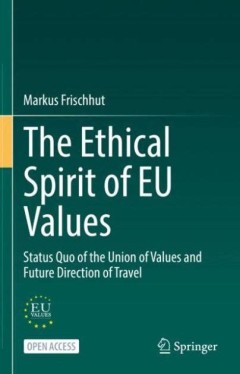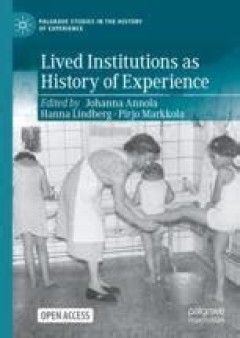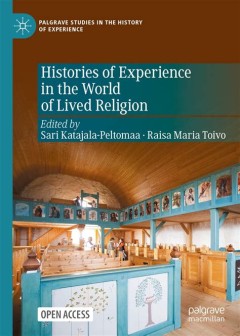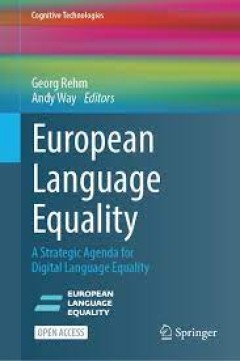Filter by

European Variations as a Key to Cooperation
This Open Access book offers a novel view on the benefits of a lasting variation between the member states in the EU. In order to bring together thirty very different European states and their citizens, the EU will have to offer more scope for variation. Unlike the existing differentiation by means of opt-outs and deviations, variation is not a concession intended to resolve impasses in negotia…
- Edition
- 1
- ISBN/ISSN
- 9783030328931
- Collation
- XX, 177 hlm,: ill, lamp;
- Series Title
- -
- Call Number
- -

The Future of Radioactive Waste Governance : Lessons from Europe
This Open Access book examines the radioactive waste management policies of ten European countries: Belgium, Finland, France, Germany, Italy, the Netherlands, Spain, Sweden, Switzerland and the United Kingdom. Most countries are in the process of planning and creating final storage solutions, while none has yet finalized this process. Over the past decades many countries have been renewing thei…
- Edition
- -
- ISBN/ISSN
- 978-3-658-40496-3
- Collation
- XVII, 345
- Series Title
- Energiepolitik und Klimaschutz. Energy Policy and Climate Protection (EPKS)
- Call Number
- -

The Ethical Spirit of EU Law
This open access book seeks to identify the ethical spirit of European Union (EU) law, a context in which we can observe a trend towards increasing references to the terms ‘ethics’ and ‘morality’. This aspect is all the more important because EU law is now affecting more and more areas of national law, including such sensitive ones as the patentability of human life. Especially when une…
- Edition
- 1
- ISBN/ISSN
- 9783030105822
- Collation
- XIX, 157 hlm,: ill, lamp;
- Series Title
- -
- Call Number
- -

The Resilience of the Hungarian Legal System since 2010 : A Failed Resilience?
This open access book explains the factors that cause the poor functioning or failure of certain legal institutions or the success of others in the current Hungarian legal system after the 2010 transition from liberal to illiberal/populist democracy. The authors argue in most regulatory areas that reform is needed in lawmaking or in the application and practice of law, because there are systemi…
- Edition
- 1
- ISBN/ISSN
- 9783031704512
- Collation
- VIII, 240 hlm,: ill, lamp;
- Series Title
- -
- Call Number
- -

New Directions in Digitalisation : Perspectives from EU Competition Law and t…
This open access book brings together experts from both EU competition law as well fundamental rights backgrounds, discussing the most recent developments in EU legislation on digitalisation. Most prominently, it explores the recently introduced Digital Markets Act (DMA), including a discussion on other related legislative acts and the respective case law. It is aimed mostly at academics and re…
- Edition
- 1
- ISBN/ISSN
- 9783031653810
- Collation
- VI, 294 hlm,: ill, lamp;
- Series Title
- 13
- Call Number
- -

Lived Institutions as History of Experience
This open access book focuses on institutions that were produced and formed by the emerging welfare state. How were institutions experienced by the people who interacted with them? How did institutions as sites of experience shape and structure people’s everyday lives? Histories of institutions have mainly focused on the structures and power relations produced by institutional settings. Likew…
- Edition
- 1
- ISBN/ISSN
- 9783031389566
- Collation
- XVII, 353 hlm,: ill, lamp;
- Series Title
- -
- Call Number
- -

Histories of Experience in the World of Lived Religion
'At a historic moment, when religion shows all its social and political strength in various post-modern societies around our globe, this fascinating collection of studies from the Middle Ages to twentieth-century Europe demonstrates all the richness and innovative force of investigating individual and shared experiences when questioning the cultural, political and social place of religion in so…
- Edition
- 1
- ISBN/ISSN
- 9783030921408
- Collation
- XIII, 305 hlm,: ill, lamp;
- Series Title
- -
- Call Number
- -

Lived Nation as the History of Experiences and Emotions in Finland, 1800-2000
This open access book uses Finland in the nineteenth and twentieth centuries as an empirical case in order to study the emergence, shaping and renewal of a nation through histories of experience and emotions. It revolves around the following questions: What kinds of experiences have engendered national mobilization and feelings of national belonging? How have political and societal conflicts tu…
- Edition
- 1
- ISBN/ISSN
- 9783030698829
- Collation
- XXI, 392 hlm,: ill, lamp;
- Series Title
- -
- Call Number
- -

European Language Equality: A Strategic Agenda for Digital Language Equality
This open access book presents a comprehensive collection of the European Language Equality (ELE) project’s results, its strategic agenda and roadmap with key recommendations to the European Union on how to achieve digital language equality in Europe by 2030. The fabric of the EU linguistic landscape comprises 24 official languages and over 60 regional and minority languages. However, languag…
- Edition
- -
- ISBN/ISSN
- 9783031288197
- Collation
- XXXIV, 412
- Series Title
- -
- Call Number
- -

Data Protection without Data Protectionism : The Right to Protection of Perso…
This open access book offers a new account on the legal conflict between privacy and trade in the digital sphere. It develops a fundamental rights theory with a new right to continuous protection of personal data and explores the room for the application of this new right in trade law. Replicable legal analysis and practical solutions show the way to deal with cross-border data flows without vi…
- Edition
- -
- ISBN/ISSN
- 978-3-031-19893-9
- Collation
- XVI, 431
- Series Title
- European Yearbook of International Economic Law (EUROYEAR, volume 28)
- Call Number
- 340 NAE d
 Computer Science, Information & General Works
Computer Science, Information & General Works  Philosophy & Psychology
Philosophy & Psychology  Religion
Religion  Social Sciences
Social Sciences  Language
Language  Pure Science
Pure Science  Applied Sciences
Applied Sciences  Art & Recreation
Art & Recreation  Literature
Literature  History & Geography
History & Geography